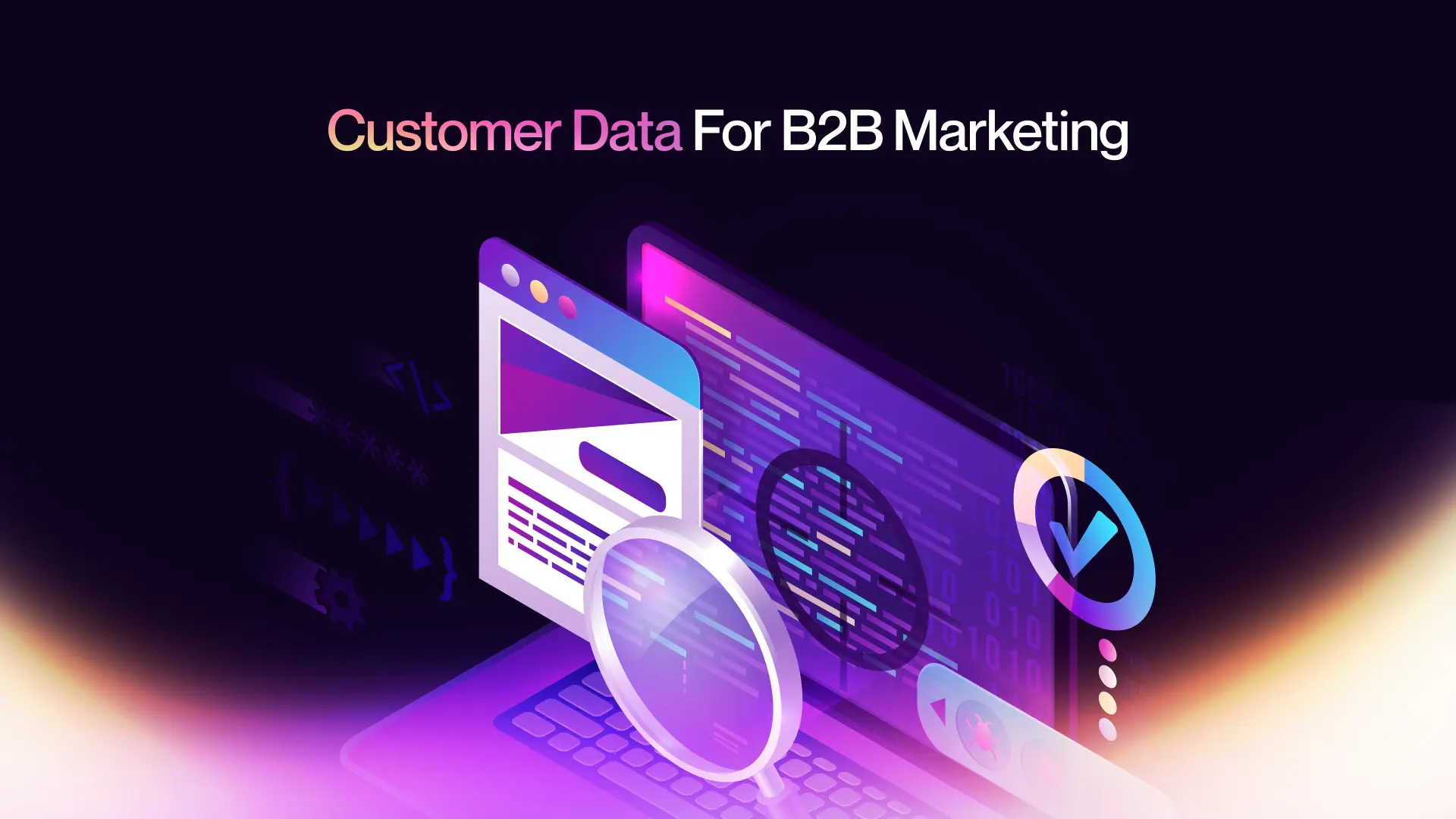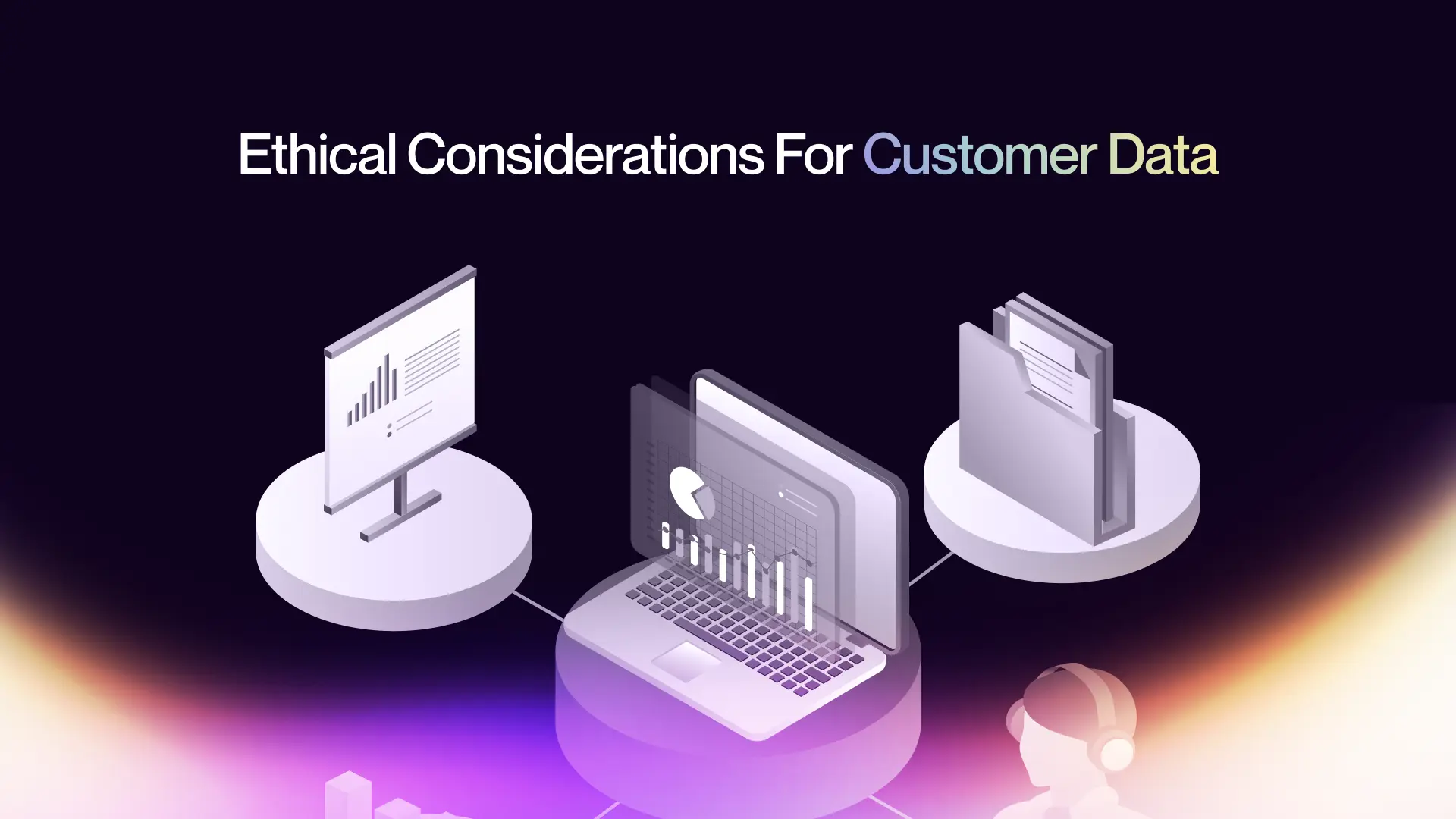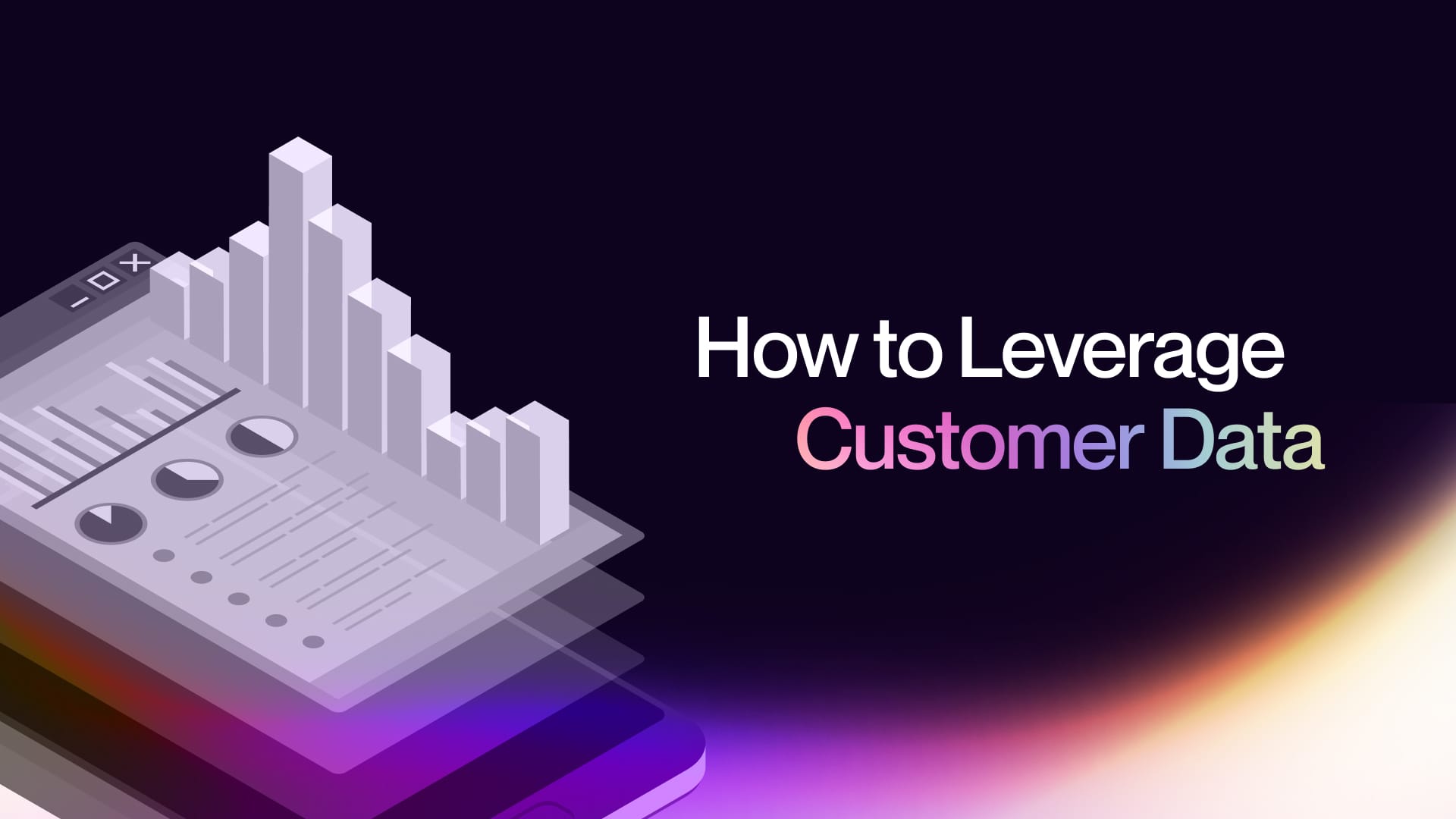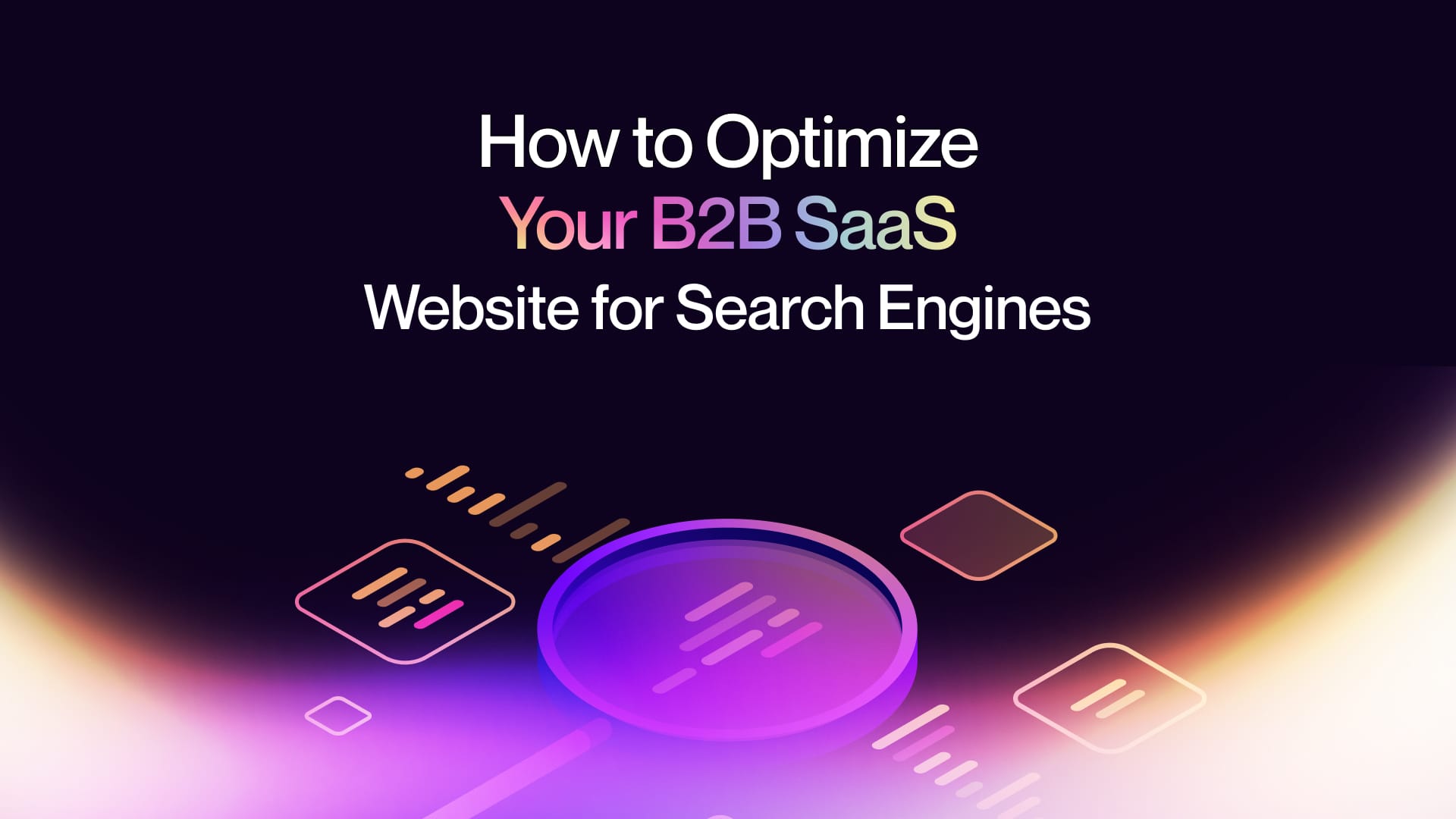The B2B marketing world is a dynamic world where changes tend to happen quickly.
But, one resource has emerged as a game-changer - customer data.
It holds the key to unlocking invaluable insights that can propel your marketing endeavors to new heights.
By tapping into the vast pool of information at your disposal, you can drive business growth, enhance customer engagement, and achieve marketing success in the ever-evolving digital landscape.
Customer Data for B2B Marketing

Before we delve into the strategies and techniques for collecting and leveraging customer data, it's crucial to establish a solid understanding of what it entails within the realm of B2B marketing.
Customer data refers to the wealth of information that encompasses various aspects of your target audience and their interactions with your brand.
Within this vast landscape, you'll encounter different types of customer data.
These include demographic information, firmographics, transactional data, website analytics, social media interactions, and more.
Each data point provides valuable insights into the behaviors, preferences, and needs of your customers, enabling you to craft tailored marketing approaches.
Effectively collecting and organizing customer data is paramount to harnessing its power.
Implementing robust data collection methods, such as customer surveys, website analytics tools, CRM systems, and marketing automation platforms, ensures you capture comprehensive and accurate information.
Proper organization and categorization of the data facilitate efficient analysis and subsequent utilization.
Leveraging Customer Data for B2B Marketing Insights: Top Strategies
.webp)
Let’s take a look at some of the most popular (and proven) strategies to help you leverage customer data for B2B marketing insights.
Build Your B2B Consumer Buyer Personas
Crafting effective B2B marketing campaigns requires more than just guesswork.
It's essential to analyze your current customer database to construct detailed buyer personas.
By leveraging the information at hand, you can create highly targeted marketing campaigns tailored to the specific needs and preferences of your prospects. To supplement your data, conducting extensive A/B testing across your marketing initiatives is crucial.
Once you have developed your B2B marketing personas, you can further enhance lead categorization by incorporating them into your online forms.
By providing options for users to select their job titles or industries, you can gather valuable data that helps automatically sort contacts into persona groups using CRM tools.
This data-driven approach enables you to send lead-nurturing emails that are more personalized, catering to each user's unique requirements.
Research shows that targeted personalization can significantly increase customer engagement, so don't miss the opportunity to build brand trust to convert your buyer personas into actual buyers.
How Does Your B2B Marketing Drive Conversions?
When evaluating the effectiveness of your marketing efforts, customer data plays a crucial role in measuring your return on investment.
It provides insights into whether your marketing strategies effectively target the right audience and if that audience is converting from leads to actual clients or customers.
Valuable resources like Google Search Console and Google Analytics offer valuable metrics for this evaluation.
Google Search Console allows you to examine the hyper-focused traffic entering your website and determine if it aligns with your objectives.
On the other hand, Google Analytics enables you to dive deeper into traffic sources, engagement metrics (such as bounce rate, site duration, and average page view), and conversion tracking, and Weflow for example offers a fantastic platform for this.
By reviewing and auditing this analytical data, you can identify which pages are converting, understand the reasons behind their success, and replicate those strategies throughout your website to maximize conversions.
Leveraging customer data in this manner empowers you to optimize your marketing efforts and achieve a higher return on investment.
A Robust Data Management System Will Work Wonders For You
A key strategy to harness the power of customer data is to establish a robust data management system.
This involves employing advanced tools and technologies that facilitate data collection, storage, organization, and analysis.
By implementing a comprehensive system, you can ensure the accuracy, accessibility, and security of your customer data.
A well-designed data management system enables you to centralize all relevant customer information, providing a holistic view of their behaviors, preferences, and interactions with your brand.
This consolidated data serves as a valuable resource for generating meaningful insights that drive effective marketing strategies.
Analyze, Analyze, Analyze
Collecting vast amounts of customer data is only half the battle. The true value lies in analyzing and extracting actionable insights from it.
By employing data analytics techniques, you can uncover patterns, trends, and correlations within the data, offering valuable guidance for your marketing efforts.
Through careful analysis, you can identify key customer segments, understand their unique characteristics, and tailor your marketing messages accordingly.
Additionally, analyzing customer data helps you identify areas for improvement in your marketing campaigns, enabling you to optimize your strategies and achieve better results.
To extract meaningful insights, utilize both quantitative and qualitative analysis methods.
Quantitative analysis involves examining numerical data, such as demographics and purchasing patterns, while qualitative analysis delves into customer feedback, sentiment analysis, and open-ended survey responses.
By combining these approaches, you gain a comprehensive understanding of your customers, enabling you to make informed marketing decisions.
Automate
Data-driven marketing automation tools offer an efficient and scalable way to leverage customer data for B2B marketing success.
These tools enable you to automate various marketing tasks, streamline processes, and deliver personalized experiences to your customers.
By integrating customer data with marketing automation platforms, you can create targeted and personalized campaigns that resonate with specific customer segments.
These platforms allow you to automate email marketing, lead nurturing, and content personalization based on customer behavior, preferences, and engagement history.
Moreover, data-driven marketing automation tools provide comprehensive analytics and reporting capabilities, giving you real-time insights into the performance of your campaigns.
This allows you to track key metrics, measure the effectiveness of your marketing initiatives, and make data-backed adjustments for optimal results.
Ethical Considerations for Customer Data

Respecting customer privacy and maintaining ethical practices are paramount when leveraging customer data for B2B marketing.
Safeguarding customer trust and maintaining a transparent relationship is essential in today's data-driven landscape.
Here are some ethical considerations to keep in mind:
- Respecting Customer Privacy and Data Protection
As custodians of customer data, it is crucial to prioritize privacy and data protection. Obtain explicit consent from customers before collecting their data, clearly communicate how it will be used, and adhere to applicable data protection regulations, such as GDPR or CCPA. Implement robust security measures to safeguard customer data from unauthorized access, breaches, or misuse.
- Complying with Relevant Data Regulations and Laws
Stay up-to-date with the evolving data protection regulations and laws governing the use of customer data. Understand the legal frameworks and requirements specific to your jurisdiction and industry. Ensure compliance with regulations regarding data storage, usage, transfer, and deletion. Regularly review and update your policies and procedures to align with the latest legal obligations.
- Building Trust and Transparency with Customers
Open and transparent communication is essential in fostering trust with your customers. Clearly articulate your data practices, including how customer data is collected, used, and shared. Offer easily accessible privacy policies and terms of service on your website. Provide customers with options to control their data preferences, such as opting out of certain data collection or marketing communications. Regularly communicate any changes in your data practices and address customer concerns promptly and transparently.
- Anonymizing and Aggregating Data
When analyzing customer data, take steps to anonymize and aggregate data whenever possible. By removing personally identifiable information (PII), you protect customer privacy while still deriving valuable insights from collective data trends. Ensure that data sets are sufficiently anonymized to prevent re-identification.
- Data Governance and Responsible Data Use
Establish clear data governance practices within your organization. Assign roles and responsibilities for data management, ensuring that only authorized personnel have access to sensitive customer information. Implement data retention policies that align with legal requirements and business needs. Regularly audit and monitor data usage to prevent unauthorized or unethical practices.
Final Thoughts
Leveraging customer data for B2B marketing insights is a powerful strategy that can propel businesses to new levels of success.
The potential of customer data in B2B marketing is immense.
By harnessing its power responsibly and ethically, businesses can gain a competitive edge, create personalized experiences, and drive meaningful connections with their target audience.


.jpg)
%20(convert.io).jpg)

.jpg)